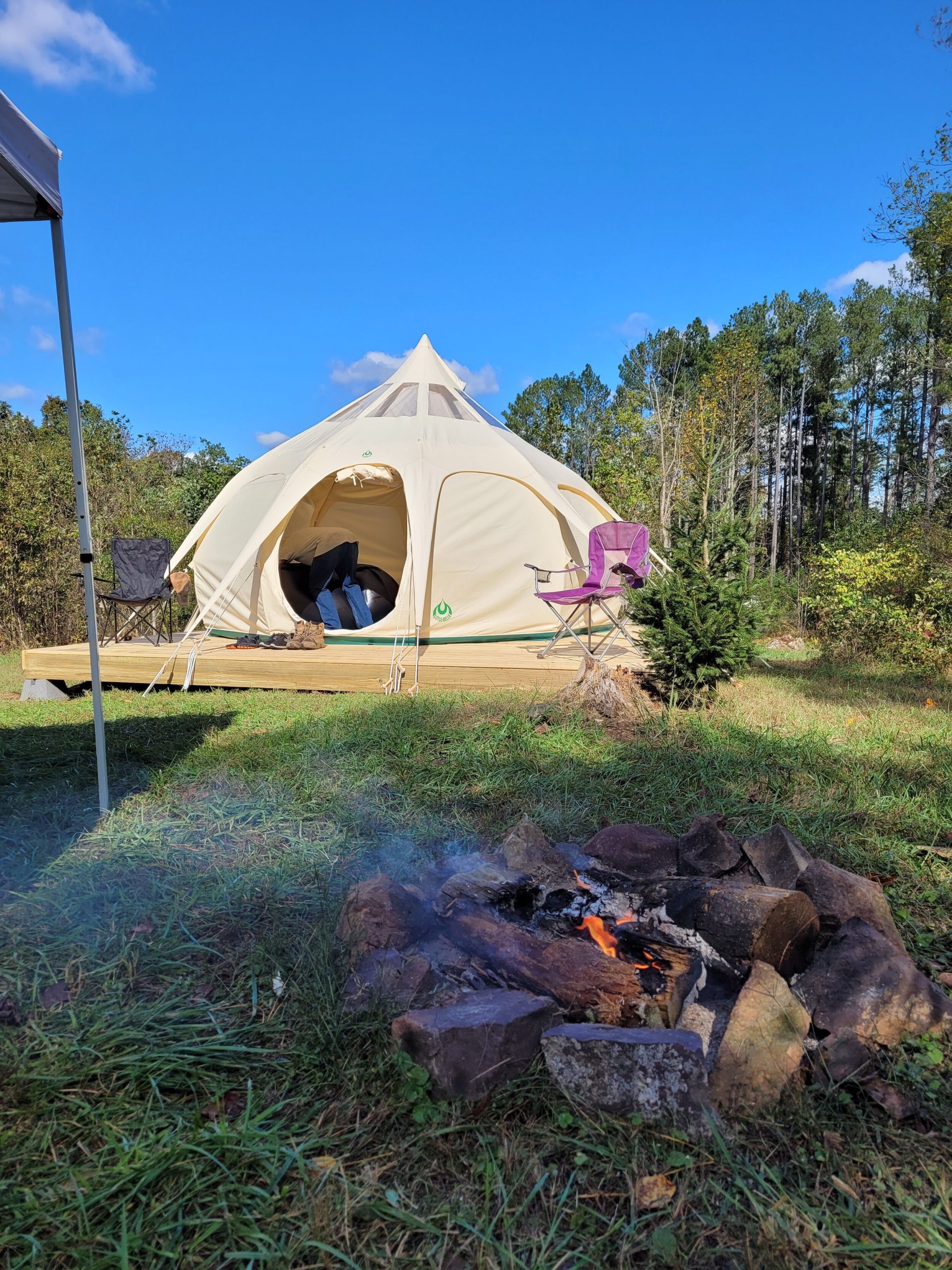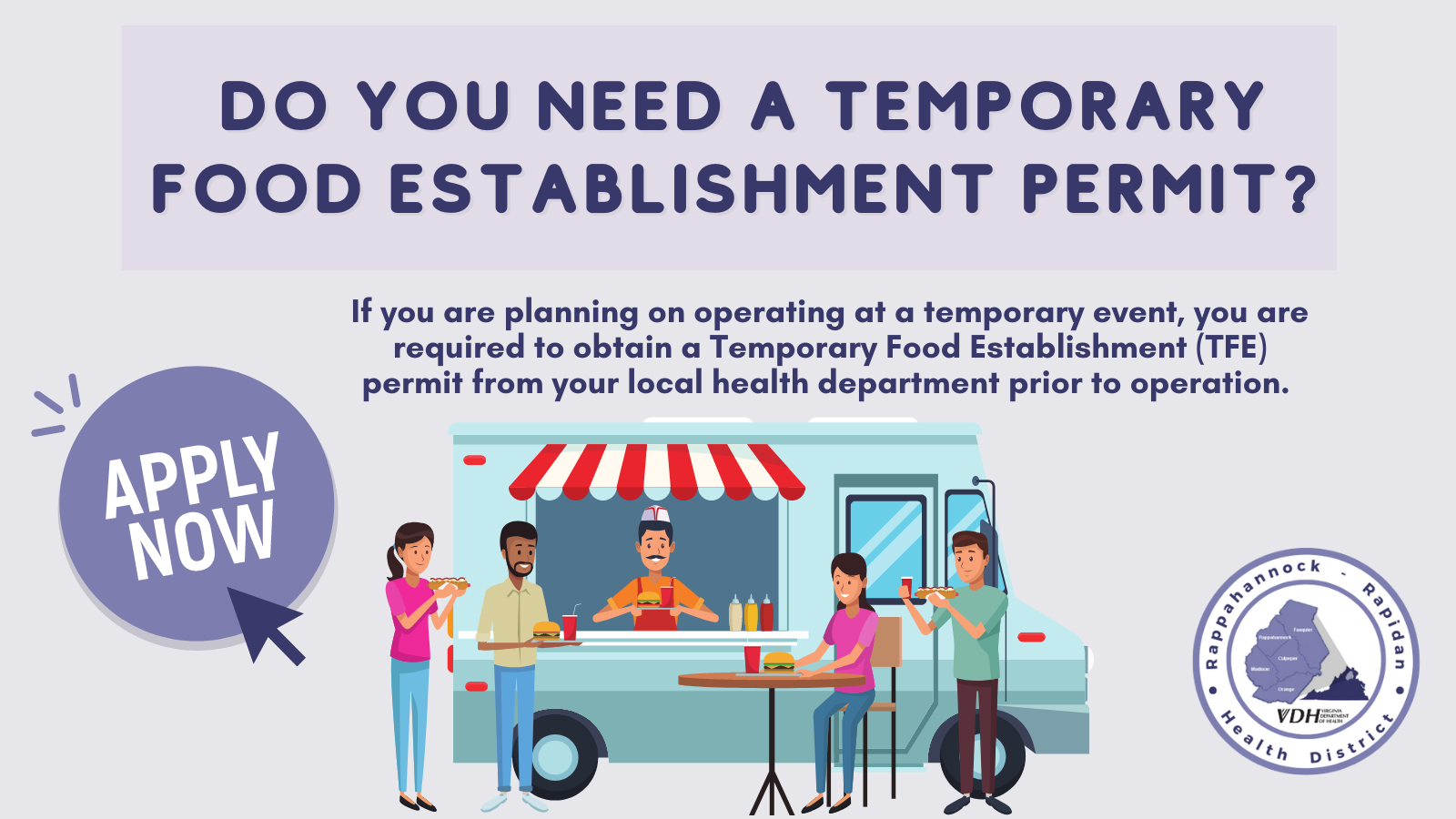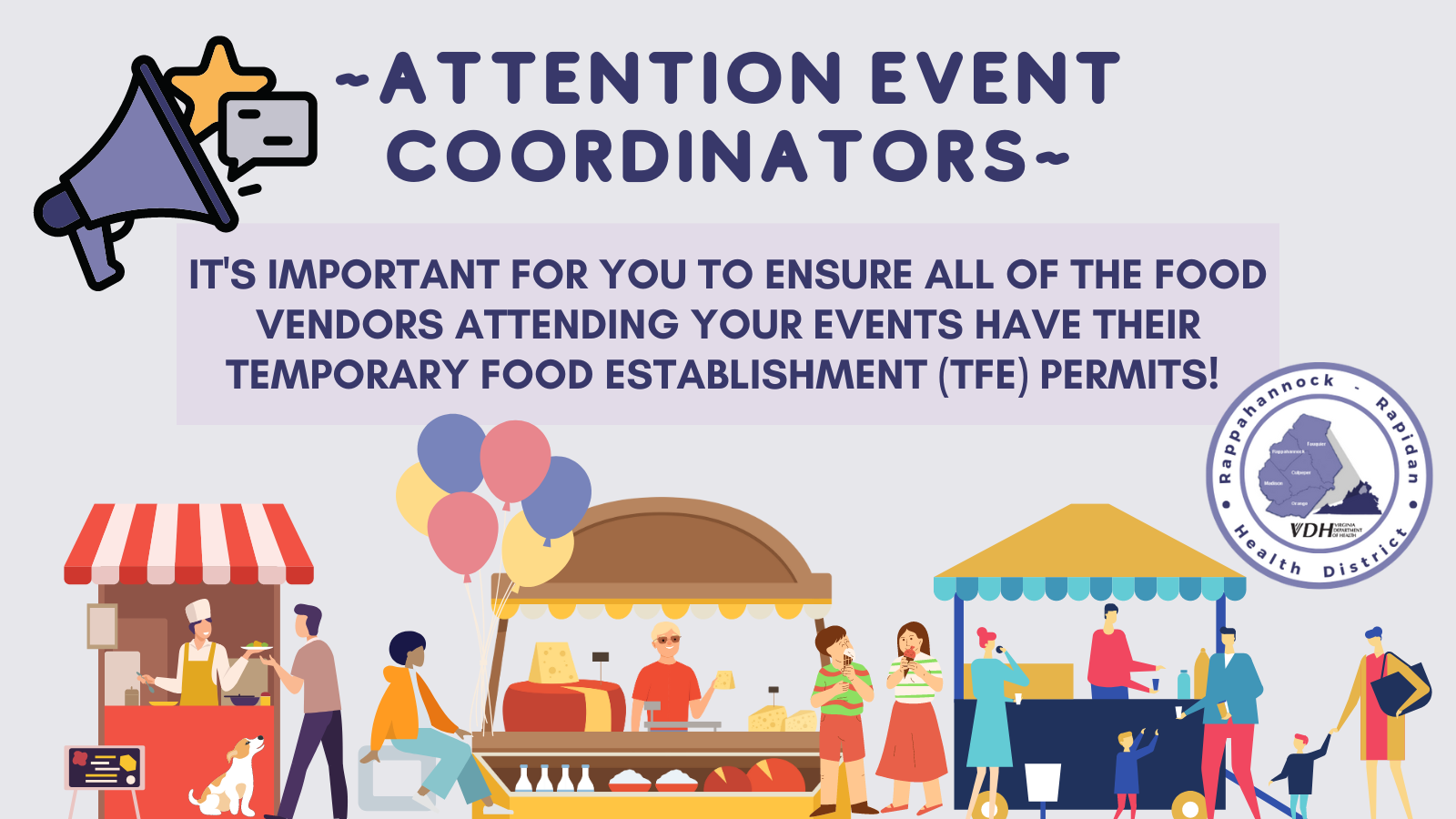Environmental health staff regulate the following:
1) food service establishments that include restaurants, cafeterias, day care centers, mobile units and temporary food establishments
2) tourist establishments that include hotels, B&B, camps, public pools and transient lodging pools.
Jump to: Report Foodborne Illness | Restaurant Inspections | Food Regulations | Temporary Food Establishments | Tourist Establishments
To Report Foodborne Illness and Food Safety Complaints
If you think something you ate is making you or someone you know feel sick, contact your doctor and then fill out this My Meal Detective form with as much detail as possible. The Virginia Department of Health will evaluate your report and follow-up with any questions.
Only one My Meal Detective form should be completed per person. You can also use this form to report other food related complaints (e.g., improper food handling observations, pest observations, and no hot water in a food facility).

Restaurant Inspections
In the Commonwealth of Virginia, there are approximately 31,000 permitted food establishments, including restaurants, hospitals, mobile food units, nursing homes, and schools. You may view inspection reports for the Rappahannock Rapidan Health District.
Environmental Health Specialists (or EHSs) perform health inspections in person. Inspections are based on risks. The type of food you make, and how you make it, decides how many inspections you get. The more complex food or process, the more visits you get. Almost all inspections are surprise inspections.
We do the following type of health inspections: 1) routine, 2) risk assessment, 3) complaint, 4) follow-up, 5) training, 6) pre-opening (scheduled)
The Health Department only inspects facilities that need or have a health permit. Local religious groups, some daycares, or fraternal organizations can ask for a courtesy inspection. Contact your local health department to schedule a courtesy inspection.
Renew a Health Permit
All food establishment permits must be renewed each year before expiration.
- Submit application with application fee.
- Submit other required paperwork, like annual water test (nitrate/nitrite and total coliform) or certified food protection manager certification.
Your new permit will be mailed to the address listed on application.
Change of Ownership
Health department permits are not transferable. This means that a permit can only be used by the owner listed on the permit. All new owners, corporations, LLCs, etc. cannot operate a facility without obtaining a new permit issued by the Health Department. This requirement also applies to establishments that are undergoing an “administrative” change of ownership (ex: when an individual or sole proprietor wants to move his/her permit under a new corporation or limited liability company).
If your corporation, LLC, or legal name has changed, you can submit an updated permit application. Supporting documentation must be provided. For corporations and LLC’s, this documentation should include paperwork from the State Corporation Commission.
Step 1: Close your establishment. Permits are not transferable, and it is illegal for you to operate under another business’s permit. After you close, use this time to prepare and clean your store for the pre-opening inspection that will be coming shortly.
Step 2: Call our office to notify us of your situation — the sooner the better. We will work with you to re-open your business as soon as possible, but there are certain steps that must be taken. We will advise you of the steps and begin checking availability of our staff to schedule your pre-opening.
Step 3: Submit a Permit Application and application fee. We cannot conduct a pre-opening inspection unless an application and fee has been submitted.
Applications and Additional Documents for
Employee Health Big 6 and Symptoms (English) or Salud de Lose Empleados y Los Seis Grandes (Spanish)
Employee Illness Decision Guide for Managers (English) or Guia para La Poliza de Salud de Trabajodres: "Arbol de Decision" para Lost Supervisores (Spanish)
9 Food Allergens/ 9 Alérgenos Alimentarios (English and Spanish)
3-Compartment Sink Rules (English) or 3-Reglas del Fregadero del Compartimiento (Spanish)
Guidance for Clean-up of Vomiting and Diarrheal Events in Food Establishments (English) or Guía para limpieza de vómitos y diarreas en establecimientos de comida (Spanish) or Guidance for Clean-up of Vomiting and Diarrheal Events in Food Establishments (Chinese)
Temporary Food Establishments
A Temporary Food Establishment is a type of food establishment that operates for a period of no more than 14 consecutive days in conjunction with a single event or celebration, including carnivals, fairs, festivals, farmers markets, and other similar public gatherings. People or groups that want to sell or give away food at a public event must apply for a temporary food permit. Charitable organizations are not automatically exempt from permits or fees.
Application(s) must be submitted at least 30 days prior to the date of the event for events with 10 or more vendors and no less than 10 days prior to the event for all vendors.
- A food establishment with a Virginia Department of Health Food Establishment Permit issued by a health jurisdiction in Virginia and is participating as a food vendor.
- A firm/organization/company/business that is under an inspection program conducted by the Virginia Department of Agriculture and Consumer Services (VDACS).
- A gourmet food vendor who offers unpackaged samples of products to the public.
- A Mobile Food Unit (MFU) that does not have a current and valid VDH MFU permit.
- A demonstration cooking booth where samples are offered to the public.
- A restaurant that donates or sells food to a 501c3 non-profit, tax-exempt organization.
- The 501(c)(3) tax exempt organization is only exempt when the event occurs at the organization's location. A temporary food vendor application is highly recommended when event is held at organizations location. A 501(c)(3) tax exempt organization plans to operate at an event that is NOT at their organizations location and organization is not a co-sponsor, a Temporary Food Vendor Permit application is required, and vendor may be subject to permit.
A temporary food permit application is required for each separate event and $40 permit fee paid for the current calendar year or proof of payment must accompany the application.
The permit must be posted where it can easily be seen by the public, and it is only valid for the specified permit period. This permit is not transferable.
A "Food Establishment" by definition includes a "temporary facility or location where consumption is on or off the premises." Thus, a temporary Food Establishment (TFE) is a type of Food Establishment. Section 12VAC5-421-55 Certified Food Protection Manager of the Virginia Food Regulations contains no specific exemption for TFEs nor has there been an exemption for TFEs from the Demonstration of Knowledge requirement. Only TFEs that meet the criteria for exemption in § 35.1-25B and 12VAC5-21-55 B. will not need to have a CFPM.
Applications and Additional Documents for
Tourist Establishments
Our environmental health staff inspects and regulates all public swimming pools, hotels, inns, bed and breakfasts, campgrounds, and migrant camps in the Health District.
Applications and Additional Documents for

Required Human Trafficking Training for Overnight Lodging Facilities Permitted by VDH
Starting after July 1, 2023, your local VDH health inspector will ask for this information at the next routine inspection. You do not need to forward training documentation to your local health department at this time.




